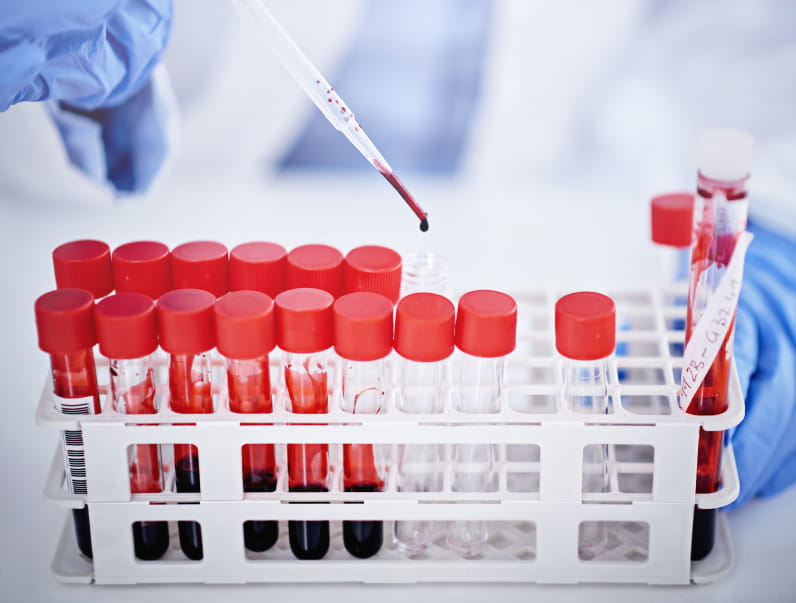Pros and cons of genetic testing

That’s one goal behind genetic testing, which offers those with a family history of cancer the opportunity to determine whether or not they may also be at increased risk so that, with this knowledge, they can take steps to address it. For many, the testing may seem like an obvious choice, but it’s important to consider the benefits, drawbacks, and potential repercussions of a potential test result.
Benefits of genetic testing
The most significant and obvious benefit of genetic testing for individuals without cancer is an increased awareness of your or your family members’ cancer risks. Testing positive for a genetic mutation in a gene like BRCA1 or BRCA2 may encourage you to take charge of cancer risk factors you can control. Individuals who test positive may make decisions they may not have before, like pursuing more frequent health screenings or making healthier lifestyle choices, or, in some cases, individuals may consider preventative surgery, like a mastectomy. In people with a cancer diagnosis, genetic testing may identify other cancer risks.
Genetic information might also help guide treatment decisions. Recent studies are beginning to support treatment more targeted treatment strategies; thus, knowing your genetic profile may be beneficial.
Psychologically, understanding if a gene mutation is in the family can help someone makes sense of their personal or family cancer history.
Lastly, knowledge garnered from genetic testing can contribute to additional research. As more individuals volunteer for genetic testing, researchers have the opportunity to learn more about the genes that contribute to cancer. In the future, this knowledge may allow for better screening, treatment and prevention options.
Drawbacks of genetic testing
It can be hard to understand how genetic testing might have drawbacks, but there are some sensitive issues and limitations to be aware of before deciding to pursue genetic testing.
Imperfect results
As with some other health screenings, there is the potential for flawed or misinterpreted results. While every effort is taken to ensure accuracy in your results, a false negative, uncertain, or even false positive result is possible. If the results of your genetic testing are inconclusive, follow-up testing may be necessary. Additionally, many cancer risks associated with various genes remain under investigation, as do some risk management strategies. A genetic counselor can help interpret your results, regardless of the outcome, and determine next steps.
Emotional impact
Although some individuals are focused on the benefits of knowing about a positive result, others may cope with news differently. Waiting for test results can cause anxiety, learning you may be at risk for cancer can cause negative emotions, like anger or fear and the idea of having to consider additional screenings or appointments to manage your risk can be stressful. Conversely, learning you test negative for a gene mutation in the family can cause guilt or confusion about cancer risk perception. Inconclusive results can also cause misconceptions or anxiety. It’s important to be aware of potential emotional responses to genetic testing to be sure you’re ready to cope with any possible result.
In addition to the emotional impact of learning your results and coping with them, genetic testing can bring up family issues. In order to get a comprehensive overview of your family health, you’ll be asked questions about members of your family and their health issues. This can sometimes touch on sensitive issues including adoption, paternity issues, and the death of family members who may have passed away from cancer or other diseases at an early age.
If you’re considering genetic testing, the first step is making an appointment with a genetic counselor, who can help you determine whether or not you may be a candidate. If you are a candidate, they’ll review the pros, cons and limitations of genetic testing help prepare you for the medical, social, and emotional aspects associated with your possible results, as well as potential management guidelines. Genetic testing is a choice and for most people, the benefits outweigh the potential drawbacks.
Visit our website to learn more about Main Line Health's Cancer Risk Assessment and Genetics Program or call 484.565.GENE (484.565.4363).
Rachael Brandt, PhD is a licensed certified genetic counselor in the Cancer Risk Assessment and Genetics Program at Main Line Health.